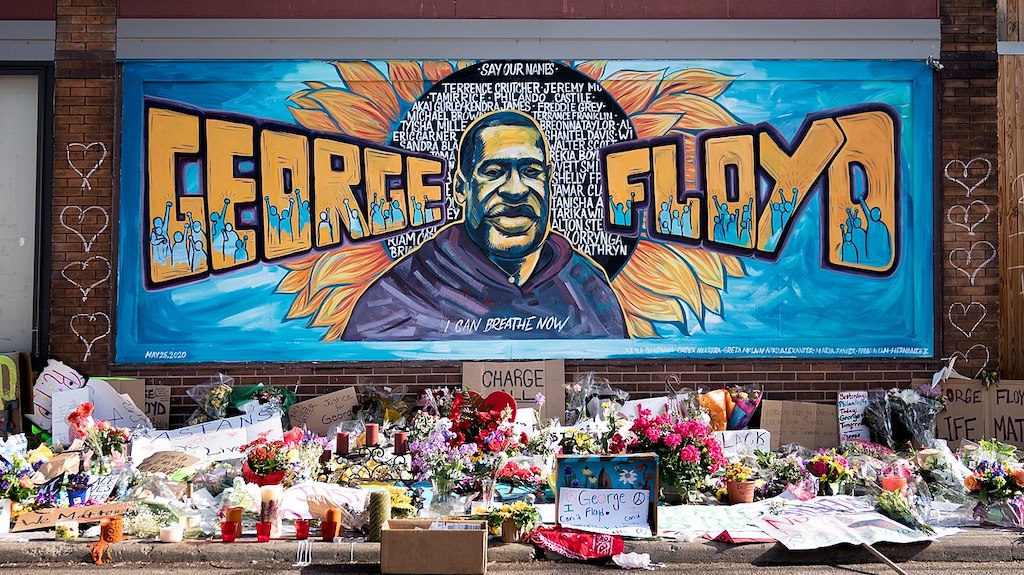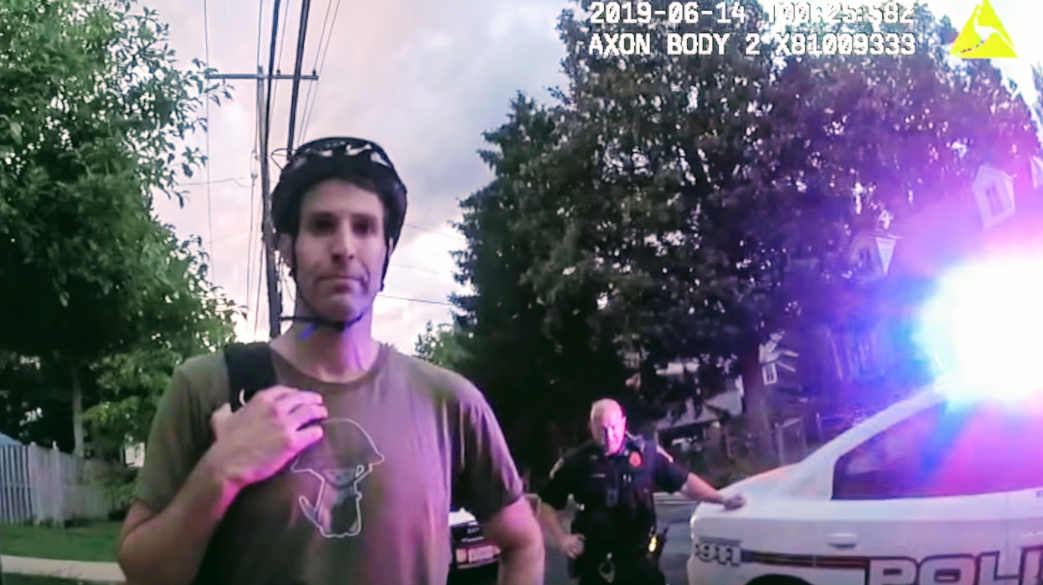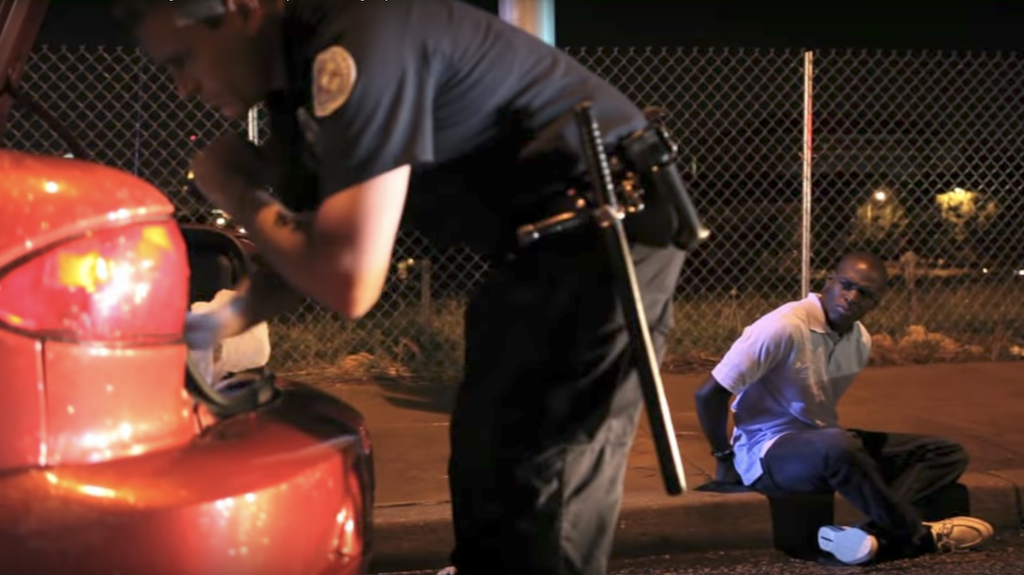Marijuana possession is technically decriminalized in New York City. Yet in 2008 NYPD made 40,000 marijuana possession arrests. How did they do it? Friend of Flex Prof. Harry G. Levine explains how in this excellent Alternet analysis. Few scholars appreciate the connection between easy pot arrests and the waiver of constitutional rights as well as he does.
Questions About Your Rights?
Blog
Some Thoughts on the Gates Arrest
 A rather typical encounter |
Last week’s media frenzy surrounding the arrest of Harvard Professor Henry Louis Gates, Jr. illustrates once again that concerns about racial profiling and police abuse are as potent as ever in American culture. The incident itself is fascinating not only because of what happened, but because of what didn’t happen. No blood was shed, no property destroyed, and no one will be facing years behind bars. Instead, we’ve witnessed a rare event in which the media has had the opportunity to debate a much more common scenario: a misunderstanding that escalated into hostility and a questionable discretionary arrest.
… Continued
Blog
Supreme Court Upholds Fourth Amendment in Strip Search Case
 Flex Your Rights Hero Savana Redding |
Today, the Supreme Court ruled 8-1 in Safford Unified School District #1 et al v. Redding that school officials violated the 4th Amendment when they strip searched a 13-year-old girl. Savana Redding was subjected to a strip search that included looking inside her underwear after the school principal received a tip that she might be in possession of prescription ibuprofen. None was found.
By a strong majority, the Court declared the search unreasonable under the 4th Amendment, finding that a full strip search was unjustified based on the nature of the drugs and in question and the absence of specific evidence that contraband would be found in her underwear.
… Continued
Blog
Motorhome Diaries Interviews Flex Staff [Video]
Check out this fun interview by Adam Mueller from the Motorhome Diaries. I love the contrast between my hyperactive demeanor and the poised Buddha-like Scotty Mo.
Blog
The Truth [on video] Will [literally] Set You Free
Need more proof that video is part of the solution to police misconduct?
Blog
Bad Cops Caught on Camera
Surveillance cameras are great for catching bad guys red-handed. Unfortunately, far too often, the outrageous crimes caught on camera are committed by police officers:
As is common in excessive force cases, the victim received several criminal charges, all of which will likely be dropped in light of the compelling video evidence. Whether the officer responsible for this savage assault will be disciplined remains to be seen, but this story certainly has “major lawsuit” written all over it.
Meanwhile in Florida, the same exact thing happened. The suspect was charged with felony assault on a police officer, until this video surfaced:
Anyone can plainly see that it was the police who were guilty of assault, not the other way around. And worse yet, the prosecutor who dropped the charges couldn’t even bring himself to admit that the guy was innocent:
“We thought based on the facts and the evidence, including the videotape, that there was no reasonable likelihood of conviction at trial,” said Lee Cohen, assistant state attorney in charge of misdemeanor cases.
Of course, it shouldn’t be a question of whether or not you can convict him. The guy didn’t do anything wrong. The police broke his nose, lied about it, and dragged him through a terrifying six-month legal battle that could have ruined his life. After all that, the only decent thing to do is admit he’s innocent, give him the mother of all apologies, and hope he doesn’t sue the department for all it’s worth.
As video technology grows cheaper and more ubiquitous, examples of gratuitous police brutality, cover-ups and false arrests are emerging routinely. Simultaneously, the web provides an efficient mechanism for exposing such conduct to the public and drawing much-needed attention to patterns of police abuse and misconduct that would otherwise have been known only to the victims. It should go without saying that police are responsible for protecting public safety – as opposed to beating up innocent people – and it’s just shameful that it’s even necessary to constantly review the tape to make sure our police officers are telling us the truth.
Alas, the real turning point in the fight against police brutality may come not because police culture takes a meaningful stand against misconduct, but rather because it may soon become nearly impossible for police to horribly abuse their power without getting caught on hidden camera.
Blog
New Video Coming Soon!
 10 Rules Director Rubin Whitmore II (center) |
I’m thrilled to announce our next video, Flex Your Rights: 10 Rules for Dealing with Police (previously titled Street Law), is scheduled for release this fall!
Thanks to a terrific group of individual and foundation givers we’ve raised $100,000 and are carrying out our vision to produce the most outstanding know-your-rights video ever.
The vision emerged as we traveled the nation teaching (and learning) about the best strategies for dealing with police. We’ve also made friends with some of the nation’s most brilliant legal minds and champions of social justice.
Blog
Supreme Court Upholds 4th Amendment in Arizona v. Gant
For many years, the Supreme Court has permitted police to search the passenger compartment of a vehicle any time an occupant of the car is arrested. These so-called “searches incident to arrest” were authorized in New York v. Belton (1981) based in large part on concerns about officer safety, namely that the suspect might dive for a weapon hidden in the car. As a result, police have grown accustomed to searching vehicles for “safety reasons” even after the suspect has been taken into custody. This doesn’t protect officers, but it certainly encourages police to make more arrests so they can do more searches.
… Continued
Blog
Baptist Pastor Assaulted After Refusing Police Search
This story has been circulating around the web and is generating some media attention as well:
Obviously, this is a deeply troubling example of a worst-case outcome for a citizen who asserted constitutional rights during a police encounter. Given that our mission is to help people understand and assert these rights, we regret that events like this happen as often as they do.
Fortunately, the internet itself has become a useful tool not only for educating the public about their rights, but also for exposing police who violate the constitutional rights of the people they’re supposed to protect. Some might say Steven Anderson’s experience is an example of how police just do whatever they want. Yet Steven Anderson is exactly the type of brave citizen whose decision to assert his rights could ultimately have a meaningful impact.
It is precisely because too many police officers continue to recklessly disregard the basic rights of innocent people that we must make sure all citizens have the tools to confidently assert their rights if they choose to do so. This incident will likely culminate in a high-profile lawsuit that could change the way similar situations are handled in the future. If it weren’t for Anderson’s decision to flex his rights, there’s no question that the officers he encountered would be out there right now abusing other people, instead of being investigated for civil rights violations.
Protecting Yourself at Police Checkpoints
Inside-the-border checkpoints like the one Anderson encountered are dubious in their legality and rely heavily on coercion. Although you are not technically obligated to answer any questions or agree to a search, officers will generally expect you to comply and will usually become aggressive if you don’t cooperate. If you choose to flex your rights in this situation, do so politely and don’t be surprised if the situation escalates.
If officers ask to search your vehicle and you refuse, they can legally conduct a dog-sniff of the outside of your vehicle (provided that a dog is present at the scene). If the dog indicates that there is contraband in your vehicle, that creates probable cause for officers to conduct a search. Unfortunately, officers sometimes falsely claim that the dog has detected contraband so that they can perform a search legally. In this situation, state clearly that you don’t agree to the search, but do not resist. You can challenge the search later.
If you feel that your rights were violated, don’t say anything to the officers. Write everything down as soon as possible and contact an attorney. Click here for more on responding to police misconduct.
Blog
Airport Security Likes Asking Questions, But Refuses to Answer Them
The TSA got more than they bargained for when they detained Steve Bierfeldt, a staffer at Ron Paul’s Campaign for Liberty. They wanted to know why he was carrying $4,700 and he wanted to know whether he was legally obligated to tell them. Fortunately, he was able to record the incident on his phone. This FOX News clip has the audio:



